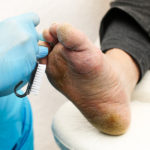By Bonnie Jenkins, Advanced Natural Wellness
Antibacterial. It’s the latest buzzword on household cleaners, sponges, shower gels, hand soaps – even socks. The message these products send to consumers is that germ-free living is healthy living.
As we’ve become a nation of clean freaks, it may seem responsible to keep germs at bay. But, a growing number of researchers warn that the overuse of these antibacterial products is proving to be more harmful than helpful.
Surprisingly, some folks at the FDA agree. After a thorough investigation, an FDA advisory committee concluded that using antibacterial products doesn’t provide any health benefits. What’s more, they don’t reduce the risk of illness any more than washing up with plain old soap and water.
Bug Off
Experts testifying before the FDA committee reported that there is no proven correlation between the use of antiseptic hand washes and a reduction in illnesses at home, school and even daycare centers. Even worse, widespread use of common antibacterial products is likely to promote the development of drug-resistant bacteria.
MD Exposes the Hidden Danger to Your Eyes

When your eyesight starts to fail, it's a real problem. Suddenly you can't go to the grocery store... you can't get to the doctor if you have an emergency... you can't meet your friends for dinner…
Your "regular" doctor doesn't have time to keep up with the latest research. And the same goes for eye doctors. They go to school to learn how to fit you for glasses and contacts, but have no way of preventing the damage and loss of eyesight that threatens your freedom and independence.
Let me show you something that explains a LOT about how your eyes work.
In my FREE Special Report, I'll show you a HUGE, untapped resource for your eyes that safely and naturally restores clear, effortless eyesight.
Click here to get started...
The active ingredient in most antibacterial soaps, detergents and cleansers is Triclosan, a chemical compound with broad-spectrum antimicrobial activity. Tricolsan inhibits bacterial growth by interfering with specific processes that keep the bacteria’s cell wall intact.
While the Triclosan found in many consumer products may kill weaker species of bacteria on the spot, the bacteria that aren’t immediately destroyed can undergo mutations that allow them to thrive in the presence of antibacterial agents. Continuous use of Triclosan-containing products is believed to be a contributing factor in the rise of bacterial “super-bugs” that are resistant to a number of antibiotic drugs.
Setup for Sickness
Antibiotic resistance is only one of many health-related problems linked to Triclosan. A growing body of scientific evidence suggests that widespread use of antimicrobial agents may weaken our immune systems.
The development of a healthy immune system depends on our exposure to a wide variety of microbes, especially during childhood. Many experts fear that children raised in super-sterile environments will end up with weak, immature immune systems that leave them susceptible to disease.
Recent research supports this notion: The results of several studies suggest that children living in ultra-clean homes are more likely to develop asthma, allergies and eczema. Kids who grow up on farms, on the other hand, have been found to have fewer allergies than those raised in urban and metropolitan areas.
But wait, there’s more. The environmental group, Beyond Pesticides, points out that a number of studies have linked Triclosan and its byproducts to cancer and other long-term health problems. That’s no surprise considering that one of the byproducts of Triclosan is chloroform – a potent carcinogen. Because of these health risks, Beyond Pesticides, along with other environmental groups, are lobbying to remove the chemical from all consumer products.
Are You Suffering From...
- Love handles and a pot belly
- Romance that isn't what it used to
- Forgetfulness and inattention
- Low (or no) strength and endurance
- A sex drive that's shifted into neutral...or worse
If so...you may have Mature Male Burnout. Click here to discover more about this unique condition and what you can do about it.
The Hormone Connection
Other Triclosan-related health concerns center on the potential toxicity of the chemical itself. Swedish researchers discovered high levels of Triclosan in three of five human breast milk samples tested, indicating that the chemical is absorbed into the body and stored in fatty tissues.
Because the chemical structure of Triclosan closely resembles human hormones, some experts fear that it may upset the body’s delicate hormonal balance. A number of preliminary studies suggest that Triclosan can interfere with thyroid hormone regulation and may also exert a depressant effect on the central nervous system.
One Last Thing . . .
While many experts are concerned about the risk of direct exposure to the chemical, others are worried about the impact of Triclosan accumulation in the environment. After finding antimicrobial chemicals in surface water samples in Baltimore, researchers at Johns Hopkins University concluded that these chemicals may be important contaminants of U.S. water sources.
The vast majority of Triclosan used in this country is found in consumer products that will ultimately end up in public water supplies. A 2000 survey found that 75 percent of liquid soaps and 30 percent of bar soaps contain some type of antibacterial agent, most commonly Triclosan, which goes down the bathroom drain and eventually reappears in the kitchen tap.
While drinking purified bottled water or using a good filtration system can minimize the amount of Triclosan you ingest, you can do your part to reduce the levels of this dubious chemical in the environment. Instead of relying on antibacterial products to keep you and your home clean, try washing up the old-fashioned way – with lots of soap and water.
This Just In . . .
Since we’re on the subject of germs, a new study by researchers at Alexandria University in Egypt reports that green tea can help antibiotics be three times more effective in fighting drug-resistant bacteria.
Green tea is common in Egypt, and it’s likely that many people there drink it while taking antibiotics. Therefore, the researchers wanted to determine if green tea would decrease or increase the effectiveness of antibiotics or have no effect.
The Alexandria scientists tested green tea in combination with antibiotics against 28 disease-causing microorganisms belonging to two different classes. In every single case, the green tea enhanced the bacteria-killing activity of the antibiotics. For example, the killing effect of chloramphenicol was 99.99 percent better when taken with green tea than when taken on its own.
So the next time you’re struck down with a bug requiring antibiotics, boost their power by drinking four to six cups of green tea daily. Not only will it help eradicate the bacteria, it just might get you back on your feet faster than if you just took the antibiotic alone.
References:
Allmyr M, Adolfsson-Erici M, McLachlan MS, et al. “Triclosan in plasma and milk from Swedish nursing mothers and their exposure via personal care products.” Science of the Total Environment. 2006;372:87-93.
“Anti-bacterial chemical back in the spotlight.” CosmeticsDesign.com. 8 July 2008.
Fiss EM, Rule KL, Vikesland PJ. “Formation of chloroform and other chlorinated byproducts by chlorination of triclosan-containing antibacterial products.” Environmental Science and Technology. 2007;41:2387-2394.
Tiwari TP, Bharti SK, Kaur HD, et al. “Synergistic antimicrobial activity of tea & antibiotics.” Indian Journal of Medical Research. 2005;122:80-84






